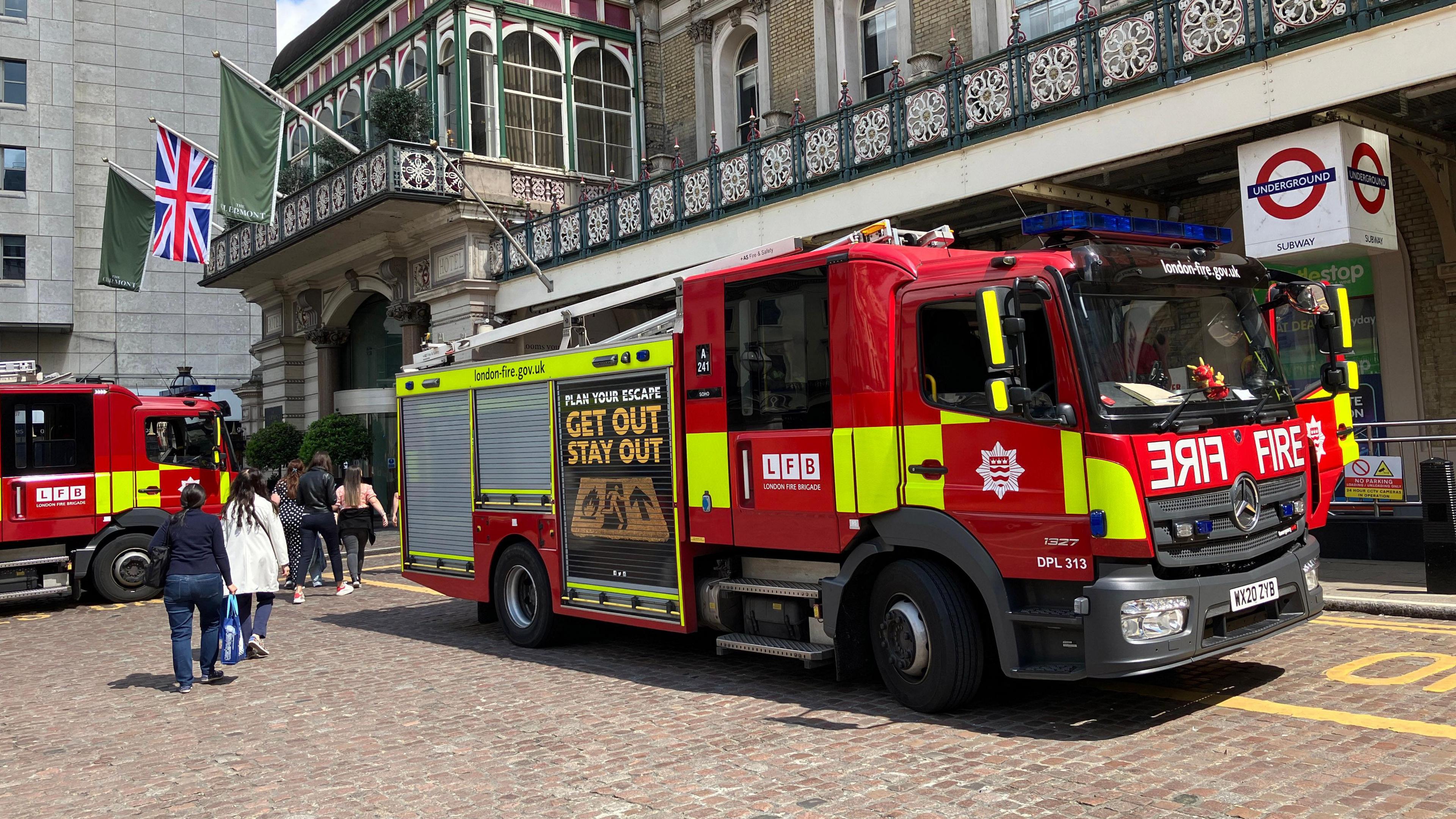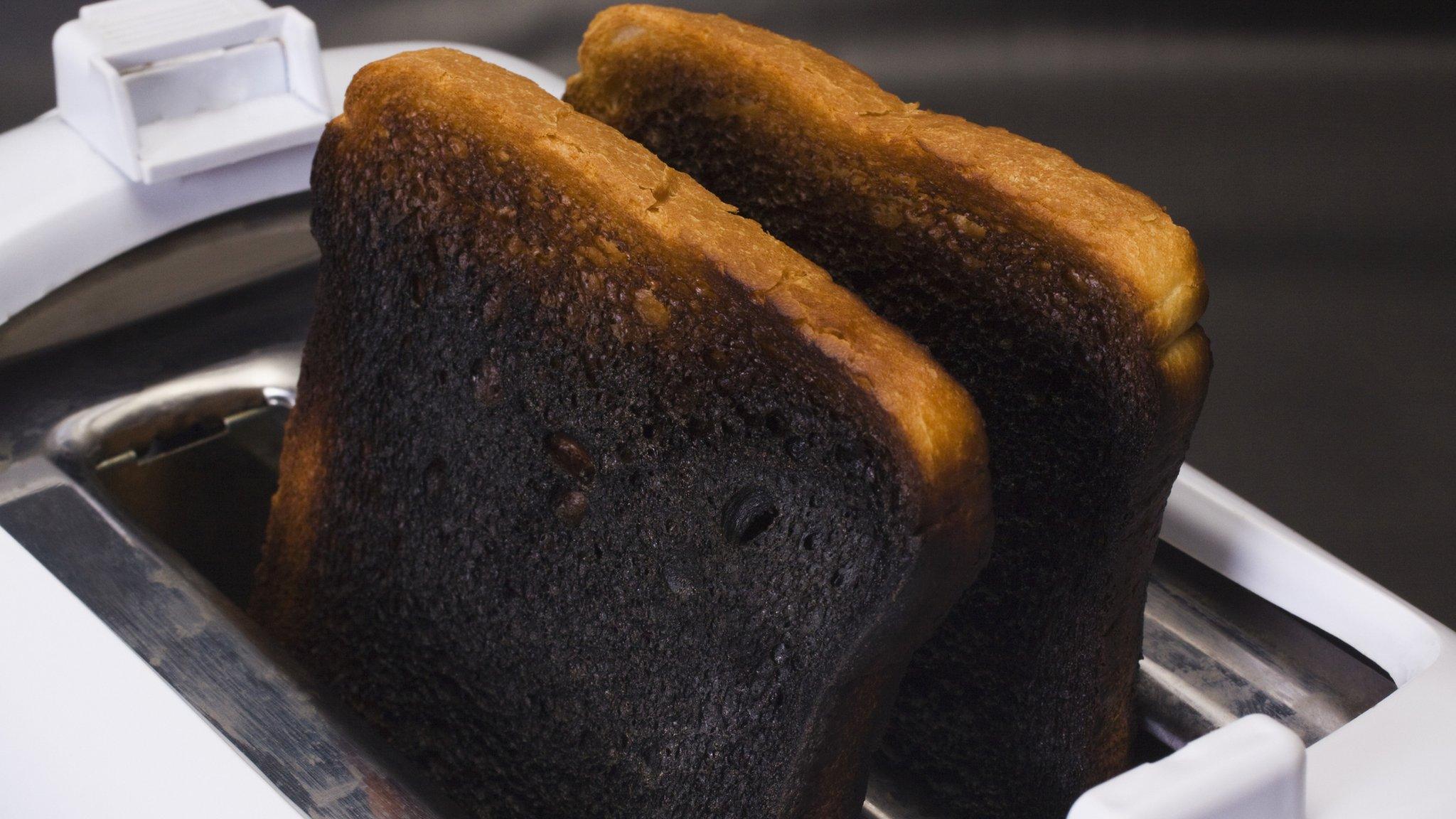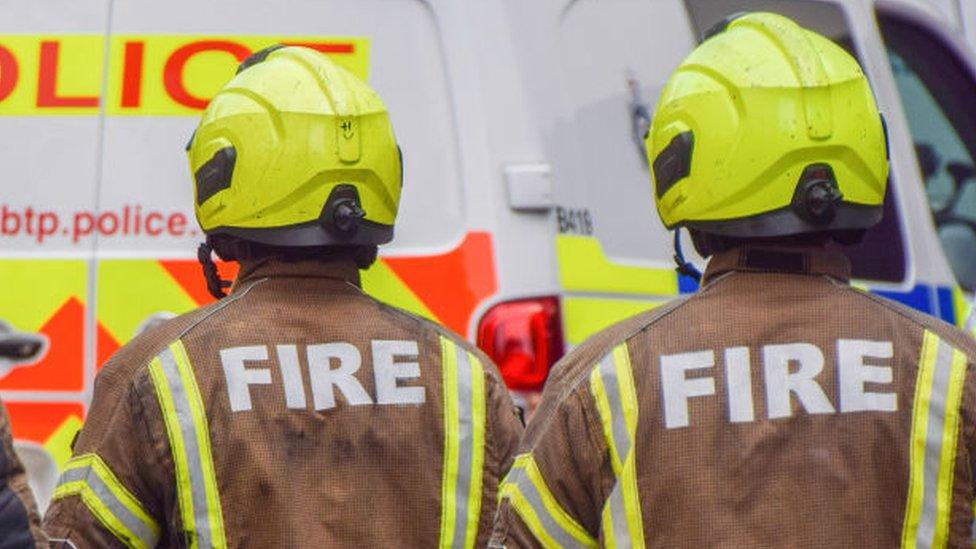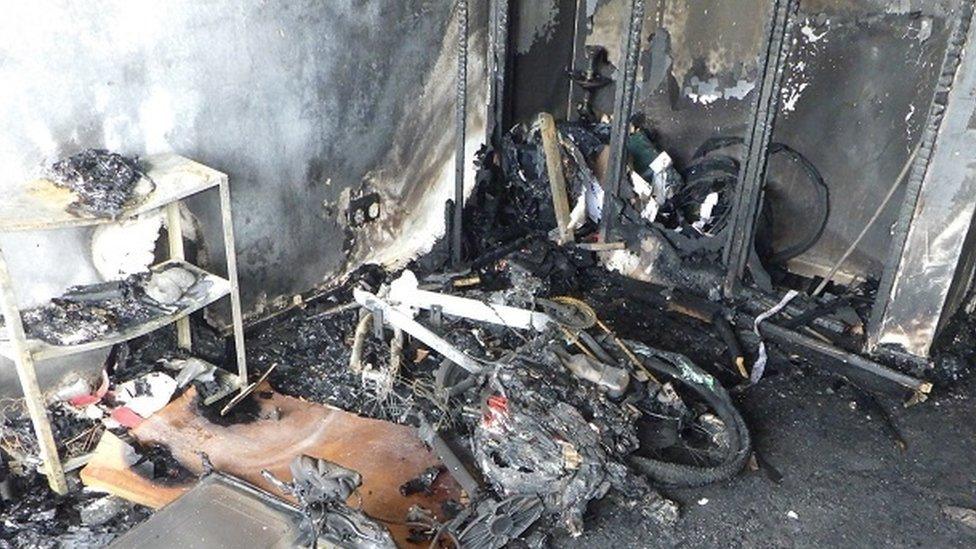London firefighters to halt automatic alarm callouts

Firefighters were called to a false alarm at Charing Cross last week
- Published
The London Fire Brigade (LFB) has announced it will soon stop attending automatic fire alarms in most non-residential buildings in the capital – unless they are told a fire is definitely happening.
LFB believes the move – which will affect buildings including office blocks and industrial estates – will save it valuable time, as less than 1% of automatic alarms are triggered by genuine fires.
The new policy will only apply between 07:00 and 20:30, during which time LFB will only attend if a call is also received from a person reporting a fire.
Deputy commissioner Charlie Pugsley said outside those hours, the brigade will still attend all alarms in any building.
He explained the change will be made in October, and will bring the LFB into line with almost every other UK fire service.
Between April 2023 and March 2024, the brigade attended around 52,000 false alarms generated by automatic fire alarms.
Other premises exempt from the new policy include hospitals, schools, nurseries, care homes and heritage buildings.
“We are here to keep London’s communities safe, and we want to do this as effectively as possible,” Mr Pugsley added.
“We will always attend an emergency and will continue to attend an alarm at any premises where people sleep – such as homes, hotels and prisons.”
The automatic systems in question are those where the LFB is alerted to a potential fire without anyone having called them.
False alerts are most commonly caused by steam or dust becoming trapped inside the detectors, or simply through poor design and maintenance, the LFB said.
Listen to the best of BBC Radio London on Sounds and follow BBC London on Facebook, external, X, external and Instagram, external. Send your story ideas to hello.bbclondon@bbc.co.uk, external
Related topics
- Published20 December 2019

- Published17 March 2024

- Published18 September 2023
